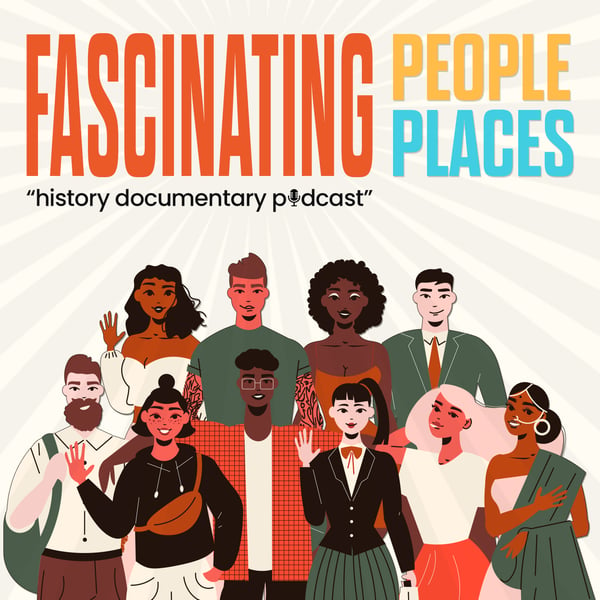The Second Anglo-Boer War
Fascinating People Fascinating Places
Daniel Mainwaring
5 • 1.1K Ratings
🗓️ 21 April 2023
⏱️ 34 minutes
🧾️ Download transcript
Summary
Transcript
Click on a timestamp to play from that location
| 0:00.0 | This episode is sponsored by World History Encyclopedia, one of the top history websites on the internet. |
| 0:08.5 | I love the fact they're not a wiki. Every article they publish is reviewed by the editorial team, not only for being accurate, but also for being interesting to read. |
| 0:20.0 | The website is run as a non-profit organization, so you won't be bombarded by annoying ads, |
| 0:26.3 | and it's completely free. It's a great site, and don't just take my word for it. They've been recommended by many academic institutions, including Oxford University. |
| 0:39.0 | Go check them out at world history.org. |
| 0:43.0 | Or follow the link in the episode description. On the 3rd of January, 1896, German monarch monarch Kaiser Wilhelm II sent a telegram to Paul Krueger |
| 1:07.1 | president of the Transval Republic. |
| 1:09.7 | Krueger's forces had just successfully repelled and attacked launched by 500 British colonists under the |
| 1:17.9 | commands of Leander Star Jamerson. Jameson. |
| 1:39.0 | Muse of the telegram caused alarm in England where preparations began for what seemed like an inevitable conflict with the Dutch South Africans, known as the Bause. But it also put Germany and Wilhelm on the map as potential adversaries of the powerful British Empire. |
| 1:47.6 | What followed was a bloody conflict that set in motion the events that would lead to the creation of the Republic of South Africa and the instigation of |
| 1:57.0 | apartheid. |
| 1:58.0 | Yesterday evening I met with Mr Mandela in Peta. |
| 2:02.0 | During the meeting Mr Mandela was informed of the government's decision regarding his release |
| 2:09.0 | further a field the conflict would have echoes in Ireland with the independence movement, the clash between |
| 2:16.1 | Britain and Germany and World War I, the concentration camps of World War II, and ultimately the end of colonialism in Africa. |
| 2:30.0 | The growth of national consciousness in Africa is a political fact that we must accept it as such. |
| 2:37.0 | In this episode, I examine the Second Bull War and speak with South African historian Desmond Latham whose projects include the Anglo-Bor-Wor-Wor podcast |
| 2:48.9 | who speak about the war, its causes and its lasting legacy. On the 25th of March, 1647, the Dutch ship, the New Harlem, crashed just off the coast of South Africa. |
| 3:09.4 | Half of the crew made their way back to the Netherlands on other vessels. But 62 men were left behind. |
| 3:17.1 | They were forced to fend for themselves in unfamiliar territory with just the provisions they were able to salvage from the stricken vessel. |
| 3:25.6 | Remarkably, the men thrive thanks to an abundant supply of fresh water, fertile soil, |
... |
Transcript will be available on the free plan in -702 days. Upgrade to see the full transcript now.
Disclaimer: The podcast and artwork embedded on this page are from Daniel Mainwaring, and are the property of its owner and not affiliated with or endorsed by Tapesearch.
Generated transcripts are the property of Daniel Mainwaring and are distributed freely under the Fair Use doctrine. Transcripts generated by Tapesearch are not guaranteed to be accurate.
Copyright © Tapesearch 2025.

